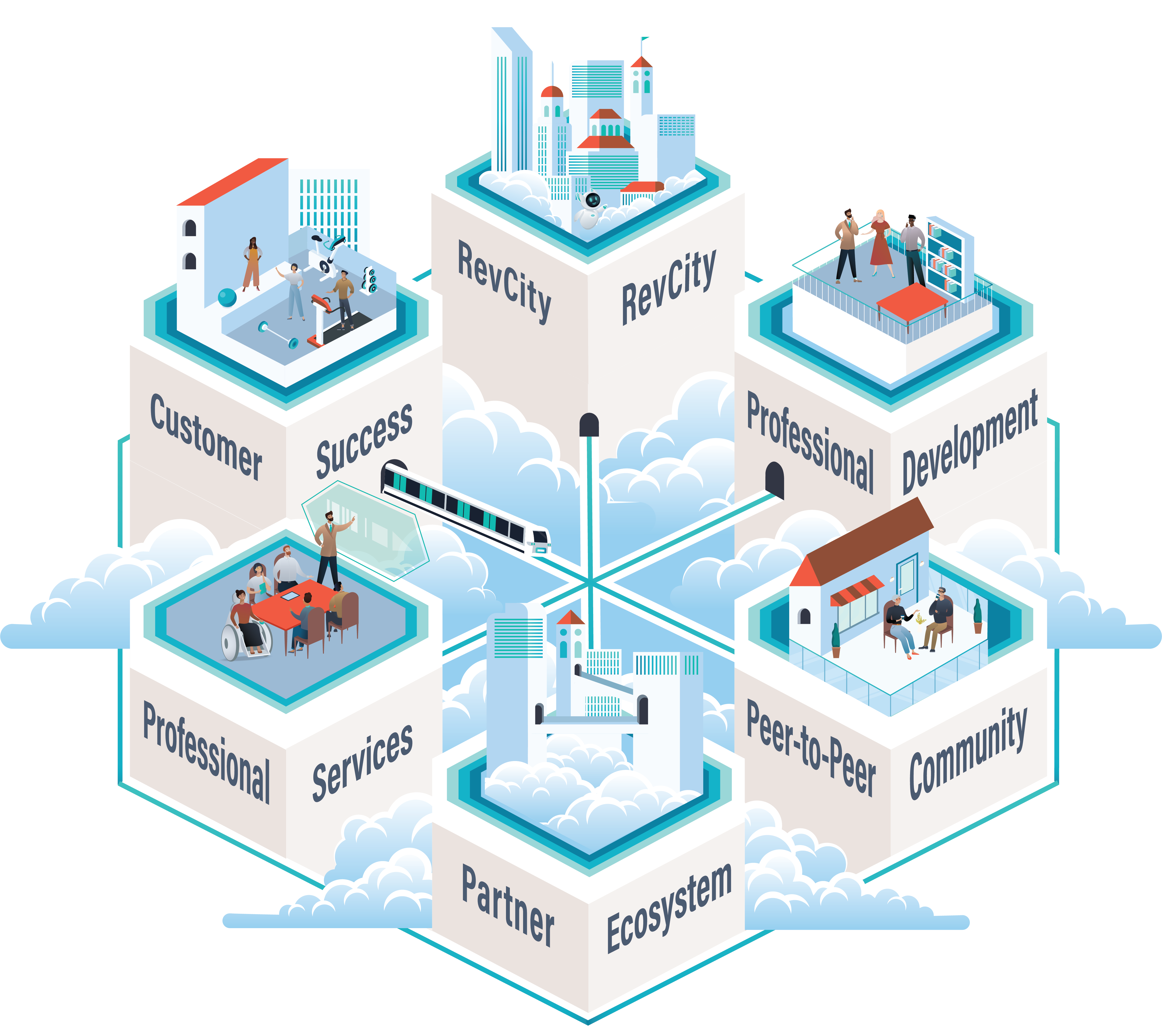Well, here we are. The novel coronavirus disease, dubbed COVID-19, has forced almost every tech employee to work from home–and that doesn’t exclude our sales team either.
Working from home changes the dynamics of a team significantly. Most SaaS companies are now functioning remotely, and for many, working remotely can be challenging, especially if they’re doing it for the first time.
But that’s not the only big change that we’re going through. Thousands of businesses across the world have shut down (even if only temporarily), or are making a loss. The purchase budgets of entire teams in several companies have been frozen, and that probably includes prospects that you’re targeting as well. The amount of traffic and number of leads coming in have started to taper off, and it’s proving to be more than just a slight inconvenience for sales teams everywhere.
COVID-19 has made a huge impact on the way we operate, so how can your sales team perform effectively while working from home in these times of distress? And if you’re a sales leader, what do you need to do to make sure you ride out the storm without hurting your company? Let’s find out.
Note: Before I get into it, remember–you can’t contribute to your company’s growth if you’re down with the virus, so make sure you stay healthy. Here’s a list of things that you can do to keep you and your family safe in these testing times.
Maintaining Team Morale & Improving Productivity
I think now’s the most opportune moment for ambitious SDRs and AEs to stand out from the crowd and show their managers what they’re made of. In a situation like this it helps to identify who’s being affected adversely by these changes or have problems working remotely. Here’s how you can go about it:
#1 Be Compassionate
Sales leaders need to be empathetic towards their team and accept the current state of affairs at a time like this. Let’s face it, all the strategies you worked on 3 months ago are probably of little use now, and we need to think laterally to solve the problem at hand.
Tell your team that you understand what they’re going through. Say it’s fine if closures get delayed, and tell them that even if this month’s goals aren’t being hit, and that it’s ultimately the half-yearly and annual targets that matter. Come up with a plan B that will keep you on track to achieve those goals.
#2 Help Your Teammates Out
Sales leaders can also spend more time working tactically with their team to take these issues head-on. If you’re a sales leader, you might want to consider:
- Spending more 1:1 time with your team members, especially if they’ve shown signs of being less productive than usual
- Sitting in on more demo and sales calls with your SDRs and AEs and giving them feedback about how they can adapt their sales style for the ongoing situation
- Going to being more of an AE than a sales head, and getting more involved in demos and negotiations to help your team hit the target
Another approach you can take is focusing on quality over quantity and closing high-value deals as opposed to lower value deals. For example, if an AE’s monthly target is $60k, then they can focus on closing two $30k deals instead of three $20k deals (if that’s possible, and you think that’s a strategy that your team can adopt at this point in time).
#3 Keep The Energy Up!
Working from home might not come easy to everyone on your team, so give them tips on being productive at home. Something like this might help:
(Source)
While staying safe from contracting the virus is something that we should all be focusing on, working from the couch or the bed can cause physical discomfort and staying home alone for prolonged periods of time (alone, especially) might take a toll on people’s mental health as well–thereby affecting sales and employee productivity.
Here’s a handy list of things that will help you and your team stay healthy while working from home.
Also, if you have teammates who are also taking care of their kids at home while working, here’s a resource that can help them out. And while we’re at it, here’s a throwback to the legendary BBC dad video–you might want to ask the parents in your team to keep from getting into situations like that one!
Talking to Your CEO & Board of Investors
Considering the circumstances, you’ve probably had a meeting (or a few) with your CEO and/or board of investors already. Teams across the globe have been having discussions about restrategizing to tackle the pandemic, and if you’re still having these conversations with your board and senior executives, here are a few tips that might help:
- Remember, the pandemic is an obstacle, not an excuse. Your sales are inevitably going to be affected over the next few weeks, but it’s your responsibility to make sure the revenue keeps coming in. The first thing you need to do is come up with a realistic estimate of how the next few months’ revenue numbers are going to look like, and how this is going to affect your annual revenue projections and forecasts.
- Set the right kind of expectations with your CEO and the board. Don’t sugarcoat it, and paint them an accurate picture of what’s about to come. Tell them what your plans to tackle this situation are, and address their concerns. The trust and support of your board and senior executives can be monumental at a time like this.
Fewer Leads, Fewer Problems?
If the number of leads and demos that your team’s been booking are fewer than usual, then ask your team to focus on closing existing opportunities and demos more and not worry too much about leads at the moment.
As we discussed earlier, now’s probably the best time to move to a “quality > quantity” strategy. Try to engage more with high quality leads and use the extra time on your hands to move existing, ongoing conversations forward.
Work on improving your team’s closing ratio. Ask your team to take more time to prepare and learn more about their prospects before demo calls. Get them to put more effort into post-demo emails and positioning your product as the right solution for their needs at this point in time.
Dealing With Leads in Different Stages of the Funnel
You might also want to adopt different strategies to deal with prospects that are stuck in different stages of the funnel right now. Here are some things that you can do.
#1 Demo Cancellations or No-Shows
If prospects cancel or end up being no-shows to booked demos because of the coronavirus situation, don’t worry about it. Send them a personalized note saying you understand what they’re going through, and that you’re here anytime they need you. Over the course of the next week, send them case-studies, one-sheeters, or (if it’s possible) even updates from your product.
However, bear in mind that a lot of companies are freezing budgets, so try and learn about your prospect’s situation and buying-power before spending a lot of time following up with them. If they admit that they don’t have the budget for your product at this point in time, you’re probably better off putting them on a nurture campaign with your marketing team’s help instead of spending time reaching out to them right now.
#2 Prospects Evaluating Your Product
If you’ve shown your prospect a demo of your product and they’re interested, but are still evaluating competitors products, you can afford to be a little more aggressive with your sales.
Understand which product they’re evaluating yours against, and send them collateral that does a head-to-head comparison of the two software and tell them why yours is better. Your sales team can also offer the good ol’ discount to get them to sign the contract and onboard them as your customer.
#3 Opportunities Nearing Closed-Won
Because of the coronavirus scare, prospects might press the pause button on signing a deal that would have definitely resulted in a closure otherwise. Opportunities that are stuck at the decision stage can be tricky; if they don’t make their decision now, you’re going to have to work extra hard to get them back to this phase again a couple of months down the line, or worse–you risk losing them forever.
It’s important that you work on getting them to become your customer above anything else in a case like this. A lot of companies right now are onboarding customers without putting pressure on their wallets, allowing them to pay for the product 45 to 90 days down the line, when this whole thing (hopefully) blows over. This can ensure that they commit to your product
If you can extend their free trial, or give them access to a freemium version of your product that would work for them for the time being, that might help make the sale too. Discounts can help as well.
Make sure you’re not aggressive with these deals, and don’t rattle them by saying that this deal’s going to expire within 24 hours, etc.
Best of Luck!
We all know that making sales during these testing times is a challenge, but we really hope you’re able to get through this without taking much of a hit!



